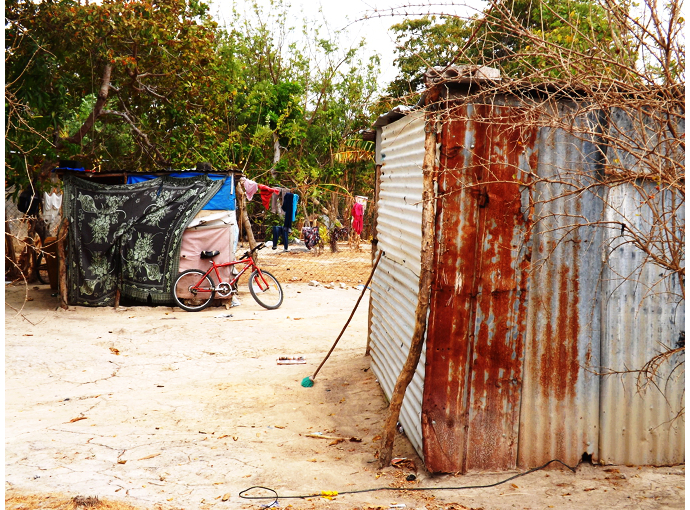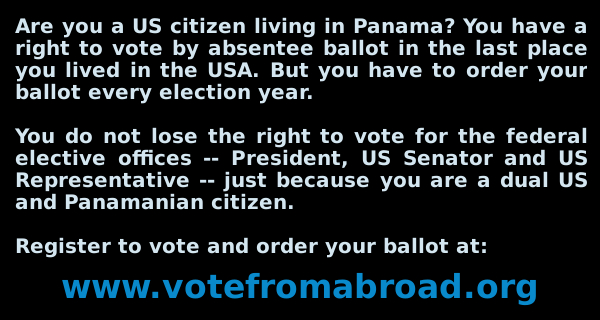And for people who live like this? Archive photo by Eric Jackson.
Panamanians are part of worldwide
efforts to answer hard questions
by Eric Jackson
“MINSA reiterates to the population to continue implementing measures such as … constant handwashing … which are efficient weapons to eradicate COVID-19.”
Ministry of Health appeal to the public
In the best of situations, medicine is not an exact science. People are not a fungible mass. That same strain of pathogenic microbe can infect two people who by most social measures are similar, and one gets the sniffles while the other dies. See enough of that, examine the cases closely enough, from enough different angles of inquiry, and profiles that are predictive and medically useful may emerge. All of the useful inquiries may not be by medical doctors.
A hot question of the moment — probably the key to whether there can be a COVID-19 vaccine — is whether and to what extent there is an acquired immunity.
Along one line of investigation, starting in April desperate doctors trying to save the lives of critically ill patients began to do something they had heard about from other places. The infused blood plasma from people who had become sick with the new coronavirus and recovered. The plasma would contain various antibodies, some of which might kill or slow the reproduction of the offending coronavirus. They didn’t actually know much about which antibody was which, but the hunch was that the treatment might work.
So did it? Records were kept, anecdotally it seemed to have helped in some cases, such that in this country the transfusions continue is cases where physicians think them indicated. Meanwhile in research labs more than hospital wards, scientists work on separating and identifying the various antibodies. What these do are studied. The world may be on lockdown but the Internet is still up, so treating physicians and researchers are constantly comparing notes across most sorts of borders.
Probably closer than a vaccine are mixtures of mass produced antibodies that would attack and hinder the coronavirus, holding it to a standstill before it can kill the patient. Not a preventive, not a cure as such, but like the anti-retroviral cocktails that can keep an HIV infection from becoming full-blown aids, there is the prospect of a lifeline to the infected.

The coronavirus-stricken USS Theodore Roosevelt, docked in Guam. US Pacific Fleet photo.
INDICASAT, the Institute for Scientific Research and High Technology Services, is a little-known Panamanian office created in 2002 for the promotion of science but since then largely neglected by politicians with attitudes ranging from a dependence on foreigners to do any serious scientific field, to a general lack of curiosity, to fear of the disruptions that a scientifically literate population might bring to established economic interests.
José Loaiza is a staff scientist at INDICASAT and were that all, he might be stuck in an organizational chart backwater. But his interests, his vocation and his networks of collaborators cross all sorts of organizational and disciplinary boundaries. He’s a professor of entomology — the study of insects and arachnids — at the University of Panama. He’s a research associate at the Smithsonian Tropical Research Institute (STRI). His interests go well beyond his subdivision of biology, spilling into the earth sciences and the social sciences into an interdisciplinary study of diseases, their vectors and their dynamics in changing environments. Along with professors from the University of Oklahoma and Johns Hopkins University, he has just published an article that asks more questions than it answers and will surely send a small army of scientists into the field.
COVID-19 in Latin America: Novel transmission dynamics for a global pandemic? takes as some of its points of departure reports from other regions and looks at some of the realities of our region.
Of concern are reports from China and South Korea about how the virus thrives in the gastro-intestinal track, and in excreted human feces. It will live and reproduce in human sewage.
What might that mean in a region where a lot of people have no running water, or no regular access to clean water at all? The inquiry gets into social statistics, facts about infrastructures, ecological studies and data on other medical phenomena that may suggest similarities with COVID-19 infection routes.
Some of the reports from other regions that attracted the interest of Loaiza and his colleagues here go to the heart of perhaps the heaviest COVID-19 mystery of them all. Is there any such thing as acquired immunity to this?
Out of Wuhan, out of South Korea, out of the crew of the stricken USS Theodore Roosevelt, we get reports of people who had been sick, then tested negative, then got sick again.
Does that mean that there is no immunity, or at least wasn’t for these individuals? Or does it mean that the viruses actually never went away, that they may have left the sinuses which were tested but they held out in the guts,, and perhaps in other organs?
Yes, this pandemic arrived on the scene and mostly presented itself as a respiratory infection. Now, however, we know that the new coronavirus disease attacks the kidneys, the heart, the brain and the digestive system as well as the lungs, sinuses and throat.
So do the sinus swabs give false negatives when the infection is hiding out in the intestines? Or do people fully eliminate their infections but remain vulnerable to re-infecting themselves? Perhaps, reinfecting by using a privy instead of a bathroom with modern plumbing? Perhaps, wiping themselves after a bowel movement and thinking themselves clean enough, but unable to do a proper job of it for lack of running water?
Lingering and hiding infections versus recurring infections is a question with major implications in the search for a vaccine.
Infected feces raise many sorts of environmental health questions. If the sewers of some Panama City neighborhood overflow onto the streets, can someone who steps in it become infected by the coronavirus? If a rainstorm overflows a rural privy and the diluted excrement makes its way into a watershed, does somebody bathing or drinking downstream run the risk of an infection from that?
The public health implications that ought to be tracked down and tested grow from just about any question that is answered. This expanding research is going on all over the world. Including here, at The Crossroads of The World.
During this quarantine Claro has increased the cost of Internet service for The Panama News by at least six-fold. To help with that, there are two things you might do:
1: Send money to the The Panama News Internet number, which is 62757611, via Ding at https://www.ding.com/
2. Buy Claro prepaid phone cards, scratch off the covering on the code numbers and email those numbers to fund4thepanamanews@gmail.com
Contact us by email at fund4thepanamanews@gmail.com
To fend off hackers, organized trolls and other online vandalism, our website comments feature is switched off. Instead, come to our Facebook page to join in the discussion.
These links are interactive — click on the boxes











